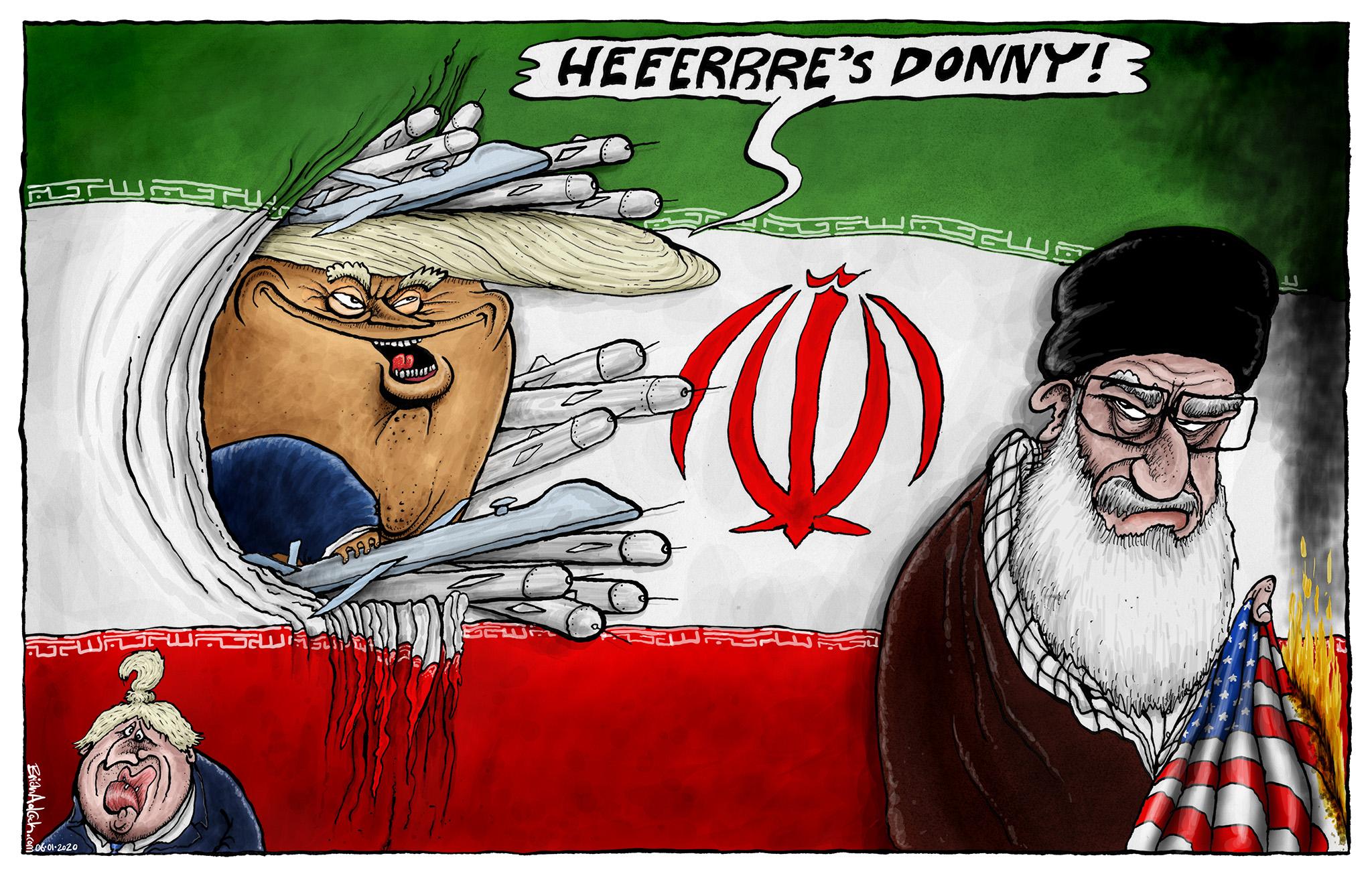Boris Johnson must step up and show leadership at a time of international crisis
The prime minister’s low profile may be down to a reluctance to criticise Trump, who Britain needs in order to make Brexit a success

Where has Boris Johnson been? According to the shadow foreign secretary (and Labour leadership contender) Emily Thornberry, he has been with his girlfriend tanning himself in the Caribbean, knocking back the vodka martinis and “not paying attention”.
Meanwhile, Iran is promising “death to America”, and President Donald Trump is threatening to bomb 52 Iranian sites (one for each of the hostages taken in the 1980 crisis). An international crisis is upon us (not to mention the aftermath of floods across England, and Brexit is just around the corner) – yet the PM has been mostly invisible, finally reappearing last night when he made a brief statement.
No doubt with modern communications, the nation’s affairs can be directed from a beach hut on a private estate on Mustique, although it doesn’t feel quite right for Cobra to be chaired by others at such a critical moment for the Middle East.
The UK’s especially villainous reputation in Iran, known as “Little Satan” to America’s “Great Satan”, has been won largely for historical reasons. Britain has long since ceased to be a great power in the region. Yet there are still vital British interests to protect, and citizens to defend in Iran and in Iraq. Indeed across the many countries where elements of Iran’s elite Islamic Revolutionary Guard Corps operate. A base in Bahrain, troops in Iraq, oil tankers and effective hostages such as Nazanin Zaghari-Ratcliffe are especially vulnerable. And with its past quasi-imperial role, Britain remains cordially loathed in many Iranian circles. It will only be able to do so much in such circumstances.
The prime minister's low profile may be down to a reluctance to criticise President Trump – who Britain desperately needs to help make Brexit succeed with a generous new trade deal. Mr Johnson might also be badly embarrassed if he had to admit that he had no more prior warning of the killing of Qassem Soleimani than did Dilyn the Downing Street dog.
Dominic Raab, the foreign secretary, has made the best of a bad job in his broadcast interviews. Britain “understood” what America had done, that is the extrajudicial killing of a foreign official, but he declined to endorse or condemn it. He stressed America’s belief in a right to self-defence – but did not specifically back the assassination. Mr Raab wants to “de-escalate” the tensions, but he was unwilling to say how. He let slip that he learned of the assassination “as it happened”. Mr Raab, in truth a bullet-headed neocon, sounded moderate and measured – a mark of how dangerous things have become.
And so the world waits to see Tehran’s reaction. In this grim calculus, the best that could be hoped for is some tokenistic attack on a Saudi oil installation, or the brief seizure of some container ships in the Strait of Hormuz. In the worst case the backlash will involve a direct attack on US citizens, military or civilian. That will push the ever-volatile President Trump, in a re-election year, into some action to prove his strength. Bombing Iranian nuclear sites? Another drone attack on the Revolutionary Guards? An attack by the Israelis? And then what? The British, at any rate, would love to know what, if any, wise advice has been proffered by Mr Johnson to Mr Trump.
Join our commenting forum
Join thought-provoking conversations, follow other Independent readers and see their replies
Comments